This paragraph should be hidden.
- MATERIAL
- HANDLES
- PRICE
- INDUCTION
A fry pan is an essential kitchen tool, but they’re not all created equally. Find the one that’s right for you.


Traditional non-stick pans are popular for their ease of use. They generally require less cooking oil and are quick to clean. They work best on medium to low heat. Using cooking sprays with these pans is not recommended as they can damage the non-stick coating.
Non-stick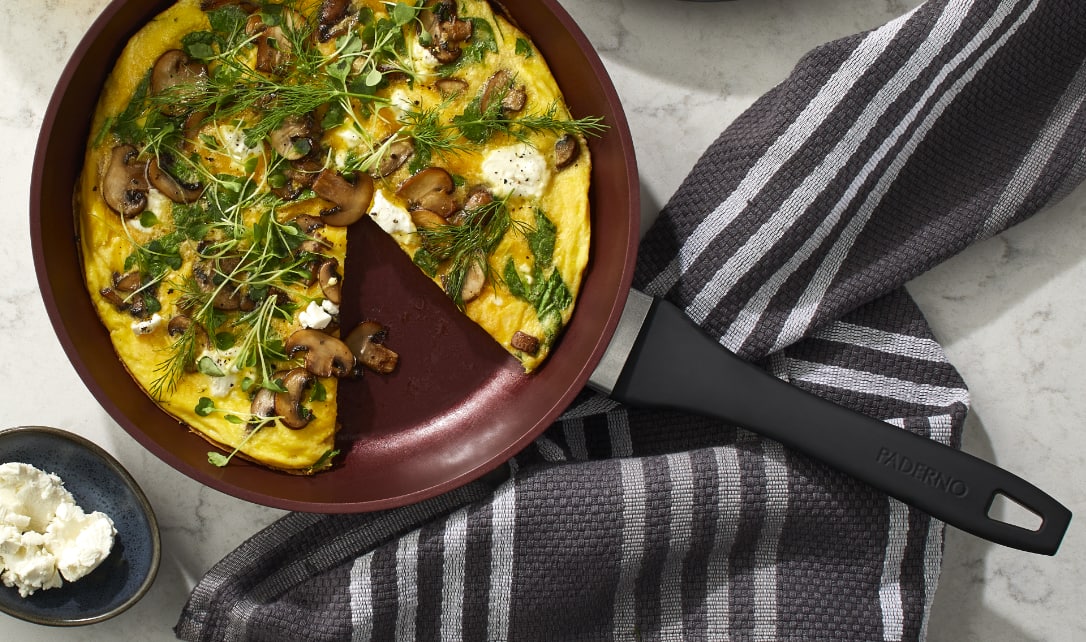
Stainless steel frying pans cook evenly at high temperatures and provide a durable cooking surface. These pans are considered non-reactive to acidic or alkaline foods, so their nutritional value and flavour are preserved during cooking. Some stainless steel pieces are not dishwasher or oven safe, so always check the manufacturer’s label before use.
Stainless Steel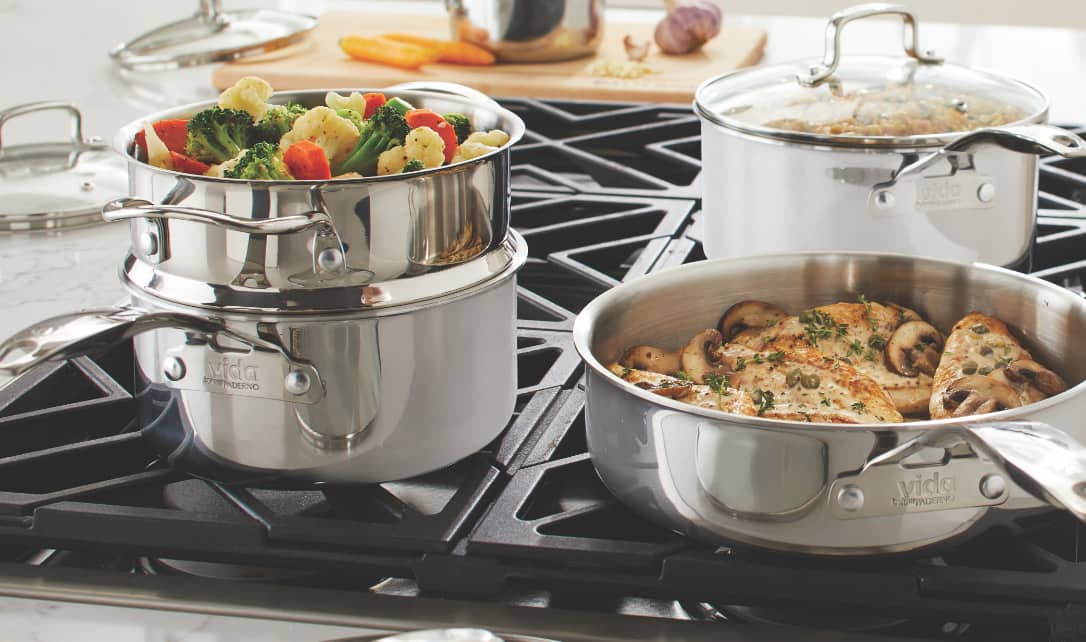
Ceramic cookware is made without harmful synthetic chemicals including PTFEs, PFOAs and PFAs. They’re non-stick and suitable for cooking on low to medium heat settings.
Ceramic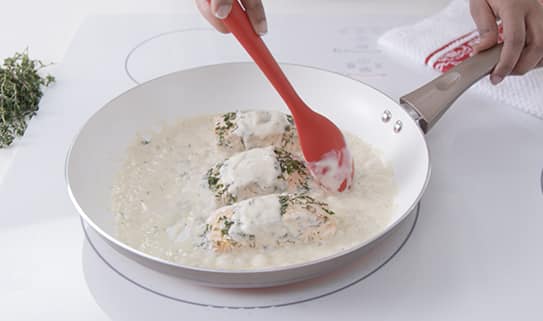
Cast iron pans are durable, with high heat retention and made without chemicals. If you choose one with a seasoned interior, it also has non-stick properties. These pans are great for searing meat and vegetables. You can safely use cast iron pans to cook on high heat, but keep in mind that they are on the heavy side. Use extra care when handling these heavy pans when hot.
Cast Iron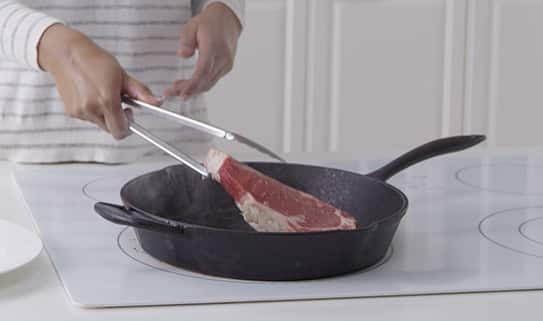
Cast iron or metal handles can be put in the oven at any heat.
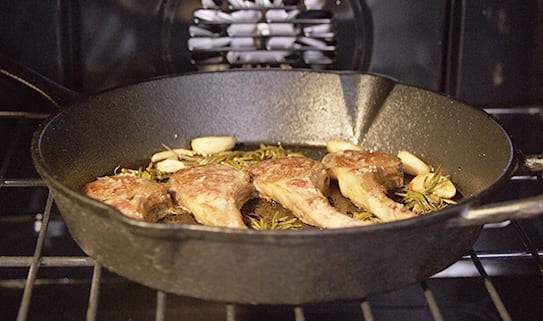
Silicone handles can be used to cook with heat of up to 400 degrees Fahrenheit. These handles are quite hot when coming out of an oven. Use caution and protect your hands.
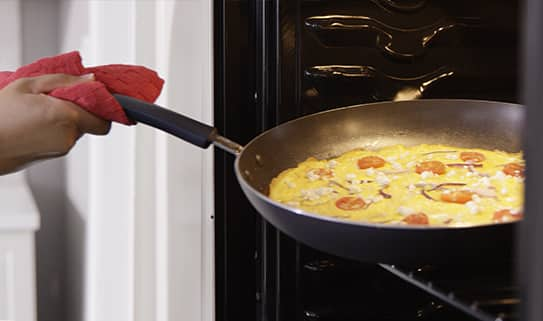
Pans with plastic handles should never be used in ovens at temperatures above 300 degrees Fahrenheit or under a broiler.

The price of fry pans varies quite a bit. Keep in mind that premium models have a higher gauge and thickness, which gives you better heat distribution and retention. It also makes the pan more resistant to denting and warping, so it will last longer. Keep an eye out for sales on higher-end models if you’re looking to make an investment.
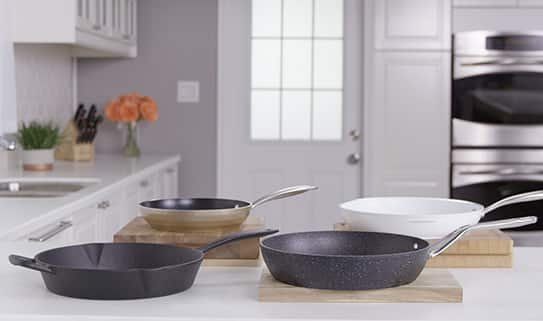
If you have an induction cooktop, your frying pan must have a magnetic steel base. You can find non-stick aluminum and stainless steel and other popular styles with the induction compatible magnetic base. Love cast iron pans? Most of these will work with an induction cooktop. Before you purchase, always check the fry pan’s label or packaging to be sure that it is suitable for induction use.
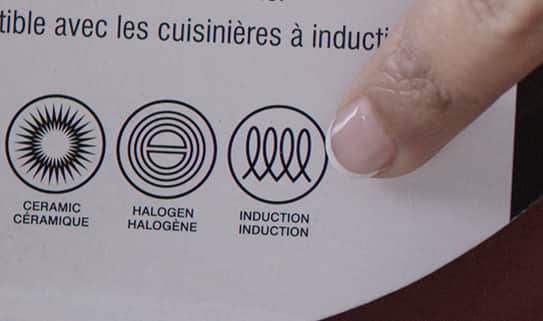

When you visit any website, it may store or retrieve information on your browser, mostly in the form of cookies. This information might be about you, your preferences or your device and is mostly used to make the site work as you expect it to. The information does not usually directly identify you, but it can give you a more personalized web experience. Because we respect your right to privacy, you can choose not to allow some types of cookies. Click on the different category headings to find out more and change our default settings. However, blocking some types of cookies may impact your experience of the site and the services we are able to offer.
Canadian Tire Privacy Charter
These cookies are necessary for the website to function and cannot be switched off in our systems. They are usually only set in response to actions made by you which amount to a request for services, such as setting your privacy preferences, logging in or filling in forms. You can set your browser to block or alert you about these cookies, but some parts of the site will not then work. These cookies do not store any personally identifiable information.
These cookies may be set through our site by our advertising partners. They may be used by those companies to build a profile of your interests and show you relevant adverts on other sites. They do not store directly personal information, but are based on uniquely identifying your browser and internet device. If you do not allow these cookies, you will experience less targeted advertising.
These cookies allow us to count visits and traffic sources so we can measure and improve the performance of our site. They help us to know which pages are the most and least popular and see how visitors move around the site. All information these cookies collect is aggregated and therefore anonymous. If you do not allow these cookies, the aggregated data will not include your visit.
These cookies enable the website to provide enhanced functionality and personalisation. They may be set by us or by third party providers whose services we have added to our pages. If you do not allow these cookies then some or all of these services may not function properly.